Part Two Joshua and Abi
Joshua
UG, Mechanical and Electrical Engineering (MEng)
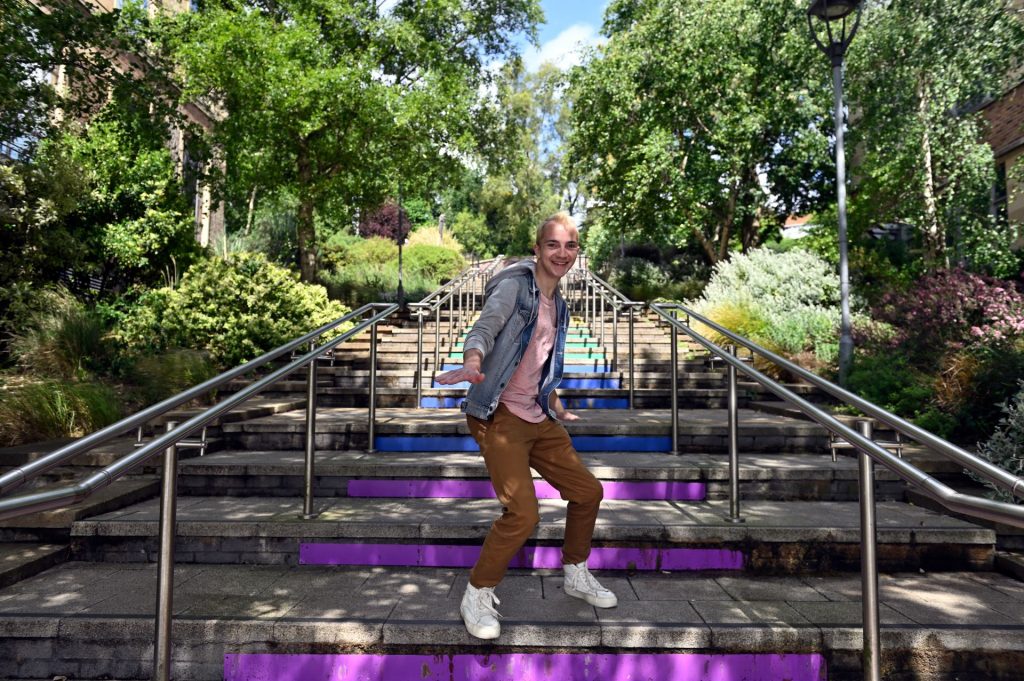
How do you identify?
Gay man
What does Pride mean to you?
To me, Pride is being true to who you are and loving yourself.
Have you been on a Pride march before and what are your memories?
I went on a Pride march back in 2019 in Birmingham. I remember the feeling of acceptance and just having fun and being able to celebrate with my friends
What does it mean to you to be part of the LGBTQ+ community?
I love having a sense of community and knowing that there will always be people out there who love and support each other.
And how important is it to study in such a diverse place?
I think it is important to study/work in a diverse place as it means that you can be true to yourself and not worry about the judgement of others
Abbi
Undergraduate Student Administrator, School of Management and Co-Chair, LGBT+ Staff Network
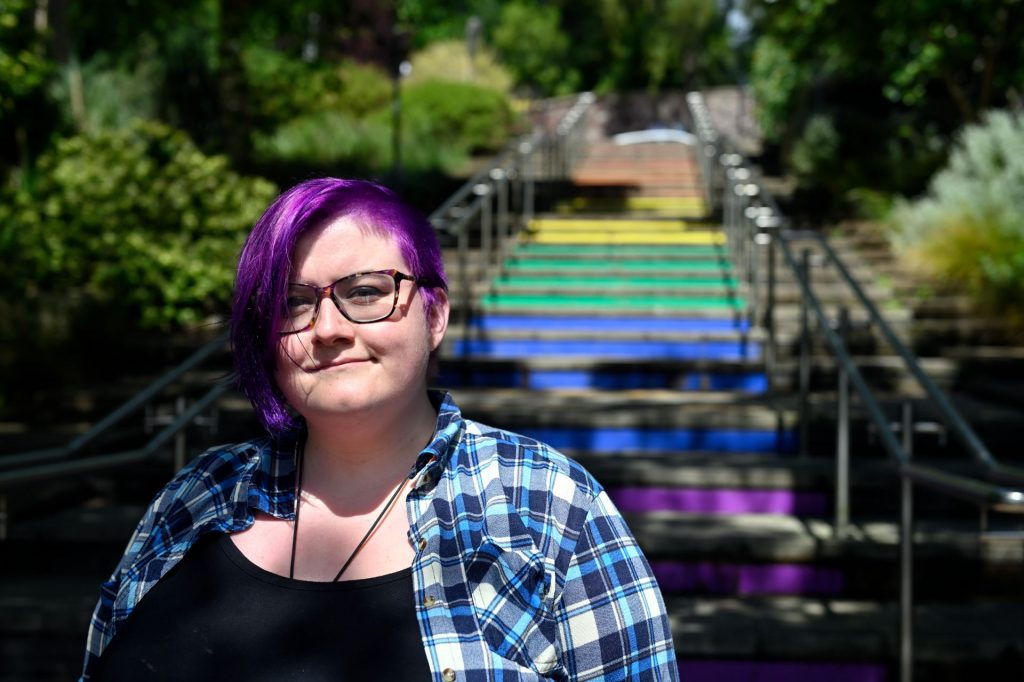
How do you identify?
I describe myself alternately as bisexual or queer, although sometimes I’ll use “gay” as shorthand – one of my favourite things about being part of the community is that a queer identity can be a wonderful, fluid thing!
I’m the Co-Chair of the University’s LGBT+ Network and am so proud to be a part of that group of amazing people and everything they do.
What does Pride mean to you?
Pride is inherently political to me – there’s no separating the two. Although I love the party and the festival and the messy fun of it all, the most important part of it for me is the fact that Pride is a protest, and the marches are a way of marking that.
Pride for me is a connection to LGBTQ+ folk throughout the ages, and community, and resilience in the face of oppression, and power, and joy and love. It’s a belonging to the huge history of different people who are part of our community and have paved the way for us to march today.
And I’m really excited to teach my little one about the people who paved the way for us to march together this year – and then to take him to the drag storytime on the Downs afterwards!
Can you tell me about your very first Pride march?
I grew up in a very small town in the middle of nowhere, so my first Pride was actually the first ever Exeter Pride in 2009, when I went to university. I was so excited to go and so scared I wouldn’t fit in, but I had an absolute blast.
I actually went with the woman who is now my wife, long before we became a couple! I vaguely remember a hot, sweaty march, and holding up a giant flag, and then wandering around stalls feeling overwhelmed and exhilarated and like I’d finally found somewhere to belong.
For me, that was a wake up call that being queer was not something I wanted to ignore – it was an intrinsic part of me, and a beautiful part of me, and it informed everything about me. And that it was possible to be out, and proud, and for that to be a brilliant, exciting thing. (I think I went home and immediately googled Marsha P. Johnson after seeing her on a poster!)


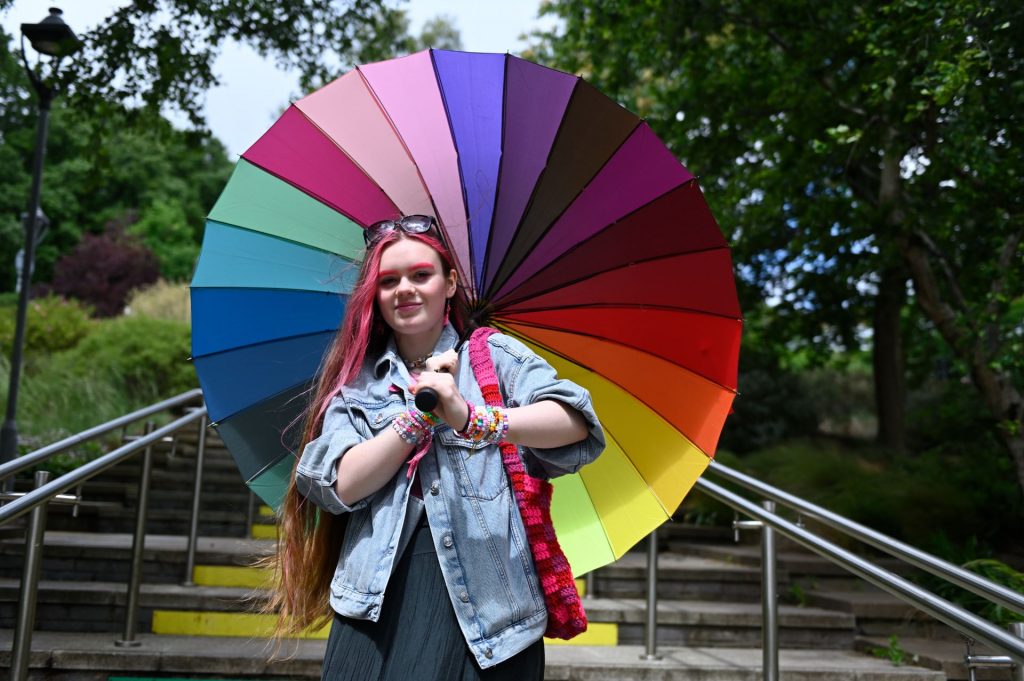
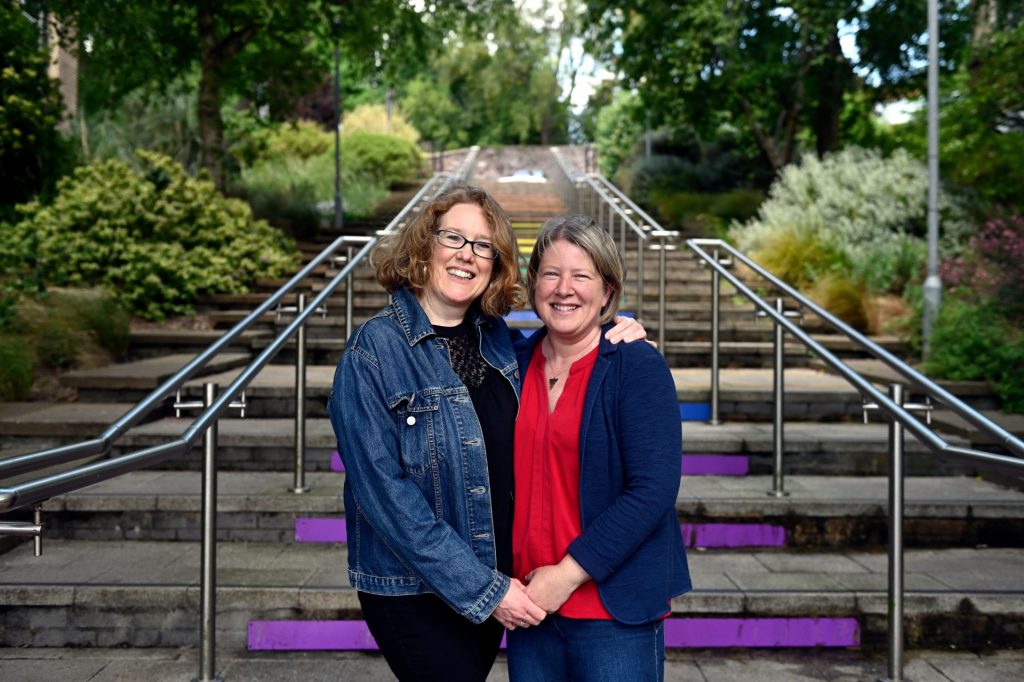
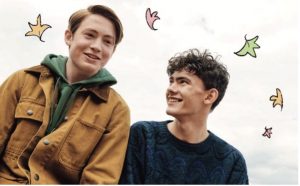 I’m sure many of you have watched, or at least heard about, Netflix’s newest hit Heartstopper. If you haven’t, it’s the story of two guys at an English secondary school who end up falling in love, and is adapted from the graphic novels of the same name by Alice Oseman. It consists of an amazing cast of LGBTQ+ characters going through issues that will be relatable for most LGBTQ+ people. It does this in a way which makes it incredibly heart-warming and doesn’t follow the usual tropes of many LGBTQ+ love films which tend to end in heartbreak.
I’m sure many of you have watched, or at least heard about, Netflix’s newest hit Heartstopper. If you haven’t, it’s the story of two guys at an English secondary school who end up falling in love, and is adapted from the graphic novels of the same name by Alice Oseman. It consists of an amazing cast of LGBTQ+ characters going through issues that will be relatable for most LGBTQ+ people. It does this in a way which makes it incredibly heart-warming and doesn’t follow the usual tropes of many LGBTQ+ love films which tend to end in heartbreak. Love, Victor – a spin off from the 2018 film Love, Simon (which itself was adapted from the book Simon vs the Homosapien Agenda by Becky Albertalli) – is airing its third and final season this month. It follows the story of Victor as he begins life at a new school, whilst also starting to question his sexuality. Whilst the first season focuses on the idea of sexuality and coming out, the second and third seasons explore the idea of life of a young LGBTQ+ person after coming out.
Love, Victor – a spin off from the 2018 film Love, Simon (which itself was adapted from the book Simon vs the Homosapien Agenda by Becky Albertalli) – is airing its third and final season this month. It follows the story of Victor as he begins life at a new school, whilst also starting to question his sexuality. Whilst the first season focuses on the idea of sexuality and coming out, the second and third seasons explore the idea of life of a young LGBTQ+ person after coming out.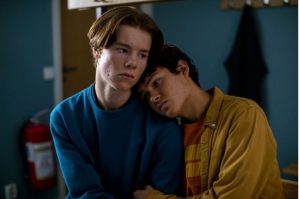
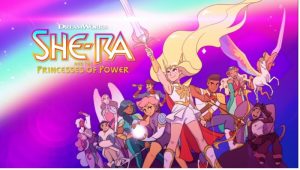 transgender characters – even if some of their identities weren’t really referenced within the actual show at all and those that were referenced weren’t until the last season. It focusses on Adora as she joins the Rebellion to fight the Horde, after gaining the power to transform into She-Ra – a 6ft warrior woman. If you want a show that is fun and silly and yet still provides strong characters and emotional moments, then it is definitely worth a watch. The Owl House follows Luz the human as she stumbles through a portal into the Demon Realm, where she trains with Eda the Owl Lady in the ways of magic. Luz herself is
transgender characters – even if some of their identities weren’t really referenced within the actual show at all and those that were referenced weren’t until the last season. It focusses on Adora as she joins the Rebellion to fight the Horde, after gaining the power to transform into She-Ra – a 6ft warrior woman. If you want a show that is fun and silly and yet still provides strong characters and emotional moments, then it is definitely worth a watch. The Owl House follows Luz the human as she stumbles through a portal into the Demon Realm, where she trains with Eda the Owl Lady in the ways of magic. Luz herself is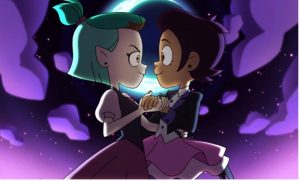 bisexual, and the show also features an array of LGBTQ+ characters – including Raine Whispers who provides notable non-binary representation. The show is made by Disney – a company who have been lacking in any form of LGBTQ+ representation in the past. These two shows allow children to grow up seeing LGBTQ+ representation on their screens, which is vital for young people to see that its okay to be LGBTQ+, whether they are LGBTQ+ or just allies.
bisexual, and the show also features an array of LGBTQ+ characters – including Raine Whispers who provides notable non-binary representation. The show is made by Disney – a company who have been lacking in any form of LGBTQ+ representation in the past. These two shows allow children to grow up seeing LGBTQ+ representation on their screens, which is vital for young people to see that its okay to be LGBTQ+, whether they are LGBTQ+ or just allies. Bly Manor is a horror show on Netflix that tells the stories of the many people – both living and dead – who inhabit Bly Manor, when a new au pair arrives at the house. Whilst being haunted, an LGBTQ+ romance blooms. Our Flag Means Death is a recently released action/comedy about pirates from director Taika Waititi. Hilarious hijinks ensue when Stede Bonnet leaves the life of an American aristocrat to become a pirate
Bly Manor is a horror show on Netflix that tells the stories of the many people – both living and dead – who inhabit Bly Manor, when a new au pair arrives at the house. Whilst being haunted, an LGBTQ+ romance blooms. Our Flag Means Death is a recently released action/comedy about pirates from director Taika Waititi. Hilarious hijinks ensue when Stede Bonnet leaves the life of an American aristocrat to become a pirate captain and then meets the feared Captain Blackbeard. The show features a diverse range of LGBTQ+ characters (with prevalent non-binary, gay and bisexual representation). Sense8 follows a group of 8 people from around the world who one day are suddenly able to communicate with e
captain and then meets the feared Captain Blackbeard. The show features a diverse range of LGBTQ+ characters (with prevalent non-binary, gay and bisexual representation). Sense8 follows a group of 8 people from around the world who one day are suddenly able to communicate with e ach other through a psychic link that forms between them. It features a diverse set of LGBTQ+ and non-LGBTQ+ characters who are all well written with meaningful relationships and impact on the plot. These sorts of shows normalise LGBTQ+ characters by not really focussing on the fact thatthey are LGBTQ+. The characters are LGBTQ+ but aren’t treated any differently for it, which makes them well-written characters who provide some very good representation.
ach other through a psychic link that forms between them. It features a diverse set of LGBTQ+ and non-LGBTQ+ characters who are all well written with meaningful relationships and impact on the plot. These sorts of shows normalise LGBTQ+ characters by not really focussing on the fact thatthey are LGBTQ+. The characters are LGBTQ+ but aren’t treated any differently for it, which makes them well-written characters who provide some very good representation.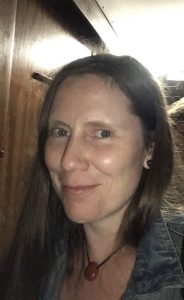 I did a master’s in social work at Bristol University and I guess my dissertation and work as a student social worker inspired me to do what I’m doing now. Alongside this, the project also stems from personal and professional experiences of male bias and seeing how this plays out time and time again in research, practice and day-to-day life.
I did a master’s in social work at Bristol University and I guess my dissertation and work as a student social worker inspired me to do what I’m doing now. Alongside this, the project also stems from personal and professional experiences of male bias and seeing how this plays out time and time again in research, practice and day-to-day life. It’s quite a few things really. Even though there is research that might talk about autistic women or autistic people, it might not even report on sexuality or race. If you just talk about the LGBTQ+ community specifically, research shows that mental health outcomes are poorer, and then you throw autism into the mix and it’s even poorer again. So yes, it would be great to raise awareness, not just about getting support, but knowing that the support is there. The funny thing is that although there’s all this medicalised talk going around with autism, the way you get a diagnosis is through behaviour. So it’s a very socially diagnosed label and a lot of people don’t realise they’re entitled to social care support.
It’s quite a few things really. Even though there is research that might talk about autistic women or autistic people, it might not even report on sexuality or race. If you just talk about the LGBTQ+ community specifically, research shows that mental health outcomes are poorer, and then you throw autism into the mix and it’s even poorer again. So yes, it would be great to raise awareness, not just about getting support, but knowing that the support is there. The funny thing is that although there’s all this medicalised talk going around with autism, the way you get a diagnosis is through behaviour. So it’s a very socially diagnosed label and a lot of people don’t realise they’re entitled to social care support.
 I started my PhD in a different area of research, looking at alternative economies. I think it was something like 2012, 2013, and I just came across RuPaul’s Drag Race. I got hooked to the point that I nearly stopped finishing my PhD! I watched all the series that were out there, and I kept watching it again and again and again!
I started my PhD in a different area of research, looking at alternative economies. I think it was something like 2012, 2013, and I just came across RuPaul’s Drag Race. I got hooked to the point that I nearly stopped finishing my PhD! I watched all the series that were out there, and I kept watching it again and again and again!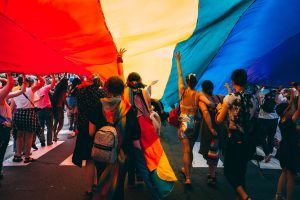 I am an advocate of Pride as a protest, I think that’s the function of Pride, rather than having a parade of corporate sponsorships. Effectively, as they became a brand, they also become more commercialized. I think Pride is a bit of a crossroad in terms of what it represents. Pride really has to reconfigure what they stand for.
I am an advocate of Pride as a protest, I think that’s the function of Pride, rather than having a parade of corporate sponsorships. Effectively, as they became a brand, they also become more commercialized. I think Pride is a bit of a crossroad in terms of what it represents. Pride really has to reconfigure what they stand for.  Yes, there are the very young people! Though we don’t yet have many of them in our research interviews. We have people more or less my age, that went through being in the closet when they were younger, that hardship there. And we’ve interviewed older people, who have been through the same thing, but they’re also really attracted to this fabulousness of drag queens!
Yes, there are the very young people! Though we don’t yet have many of them in our research interviews. We have people more or less my age, that went through being in the closet when they were younger, that hardship there. And we’ve interviewed older people, who have been through the same thing, but they’re also really attracted to this fabulousness of drag queens!
 I think that, within academia, there is a real appetite for understanding how laws, social structures and cultural practices negatively impact the lives of LGBTI+ populations. In recent times, the UK, particularly our different funding bodies, has been good in terms of providing resources for LGBTI+-focused research, and in encouraging and creating relevant conversations within academic spaces. At present, there are numerous academics across the UK who are undertaking really important studies into the lives and experiences of LGBTI+ communities.
I think that, within academia, there is a real appetite for understanding how laws, social structures and cultural practices negatively impact the lives of LGBTI+ populations. In recent times, the UK, particularly our different funding bodies, has been good in terms of providing resources for LGBTI+-focused research, and in encouraging and creating relevant conversations within academic spaces. At present, there are numerous academics across the UK who are undertaking really important studies into the lives and experiences of LGBTI+ communities.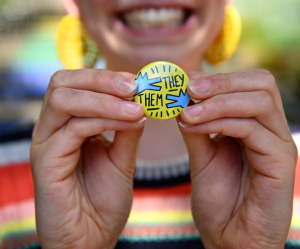
 In the first of this week’s blogs focusing on research we are talking to the vibrant Dr Sarah Jones, a lecturer and researcher in the Department of History. Dr Jones’ teaching in
In the first of this week’s blogs focusing on research we are talking to the vibrant Dr Sarah Jones, a lecturer and researcher in the Department of History. Dr Jones’ teaching in 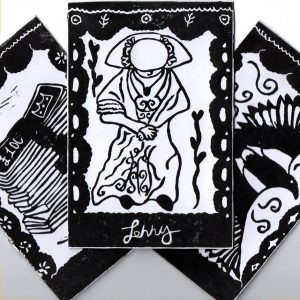 The big motivation behind the Jenny project is the fact that queer histories, and especially trans histories, are often told through what we would consider regulatory bodies, so we tend to hear about people when they’re arrested, or oppressed in some way, or when horrible things are happening to them. And that’s obviously a really important thing to look at and understand, but it also means that you don’t really get that much of a sense of these people as real, living people. History has often tended to focus on victimisation, oppression, and persecution – what Tom (Marshman) wanted to do is think about different ways we could look at the archive and build a more rounded, human story about someone like Jenny. Just a wonderfully complicated person living a complicated life in a complicated moment.
The big motivation behind the Jenny project is the fact that queer histories, and especially trans histories, are often told through what we would consider regulatory bodies, so we tend to hear about people when they’re arrested, or oppressed in some way, or when horrible things are happening to them. And that’s obviously a really important thing to look at and understand, but it also means that you don’t really get that much of a sense of these people as real, living people. History has often tended to focus on victimisation, oppression, and persecution – what Tom (Marshman) wanted to do is think about different ways we could look at the archive and build a more rounded, human story about someone like Jenny. Just a wonderfully complicated person living a complicated life in a complicated moment. 